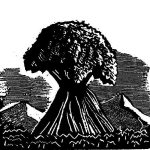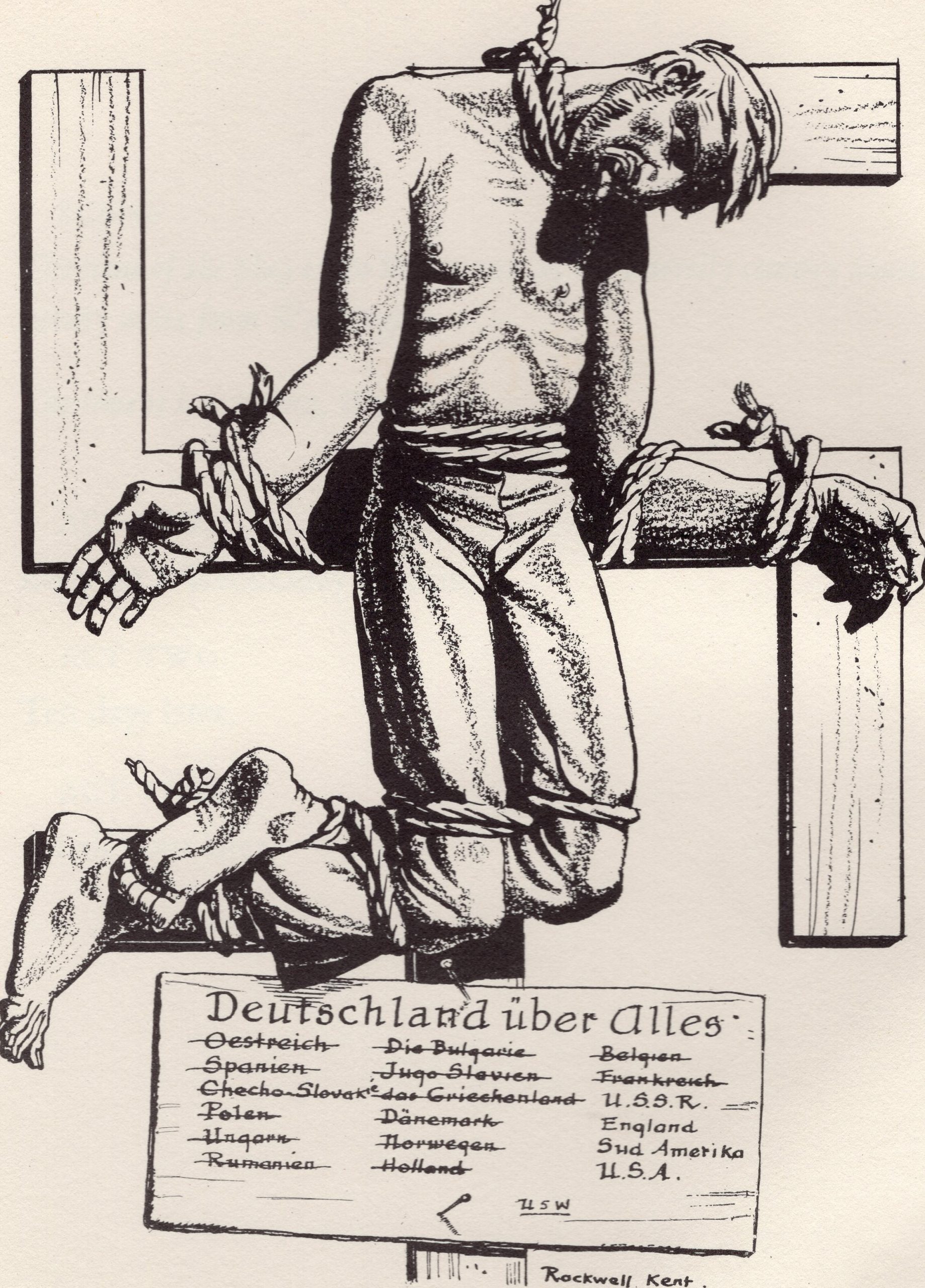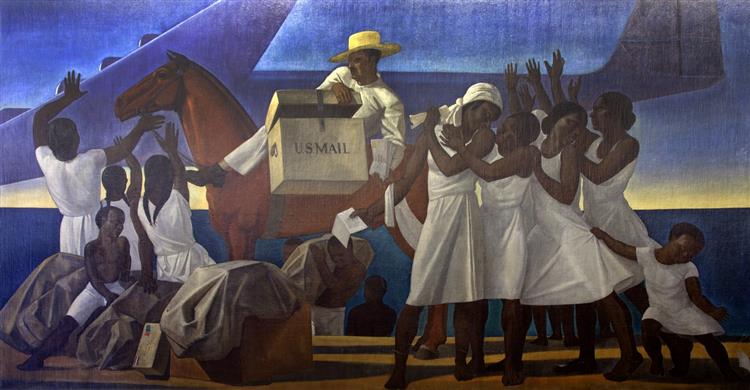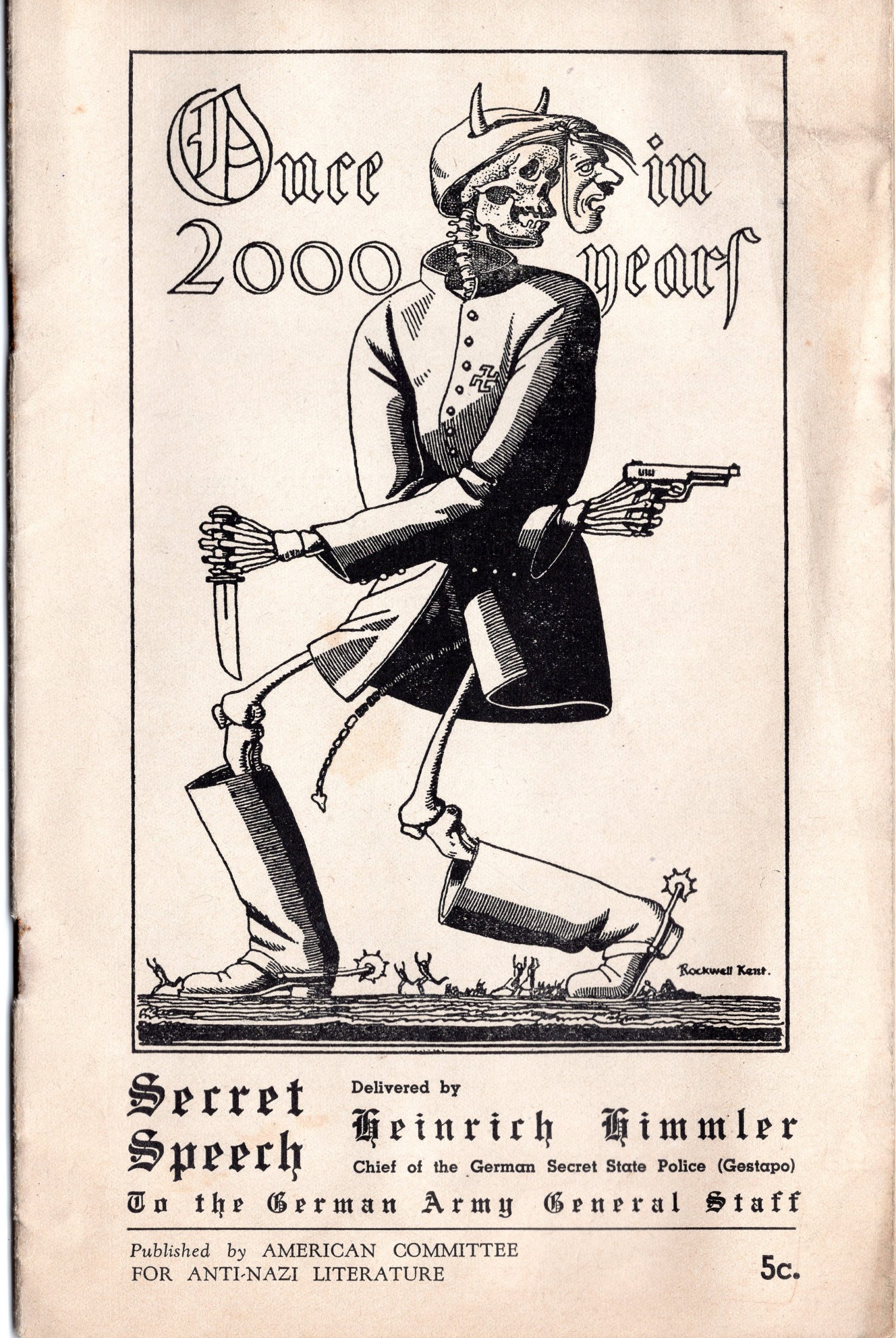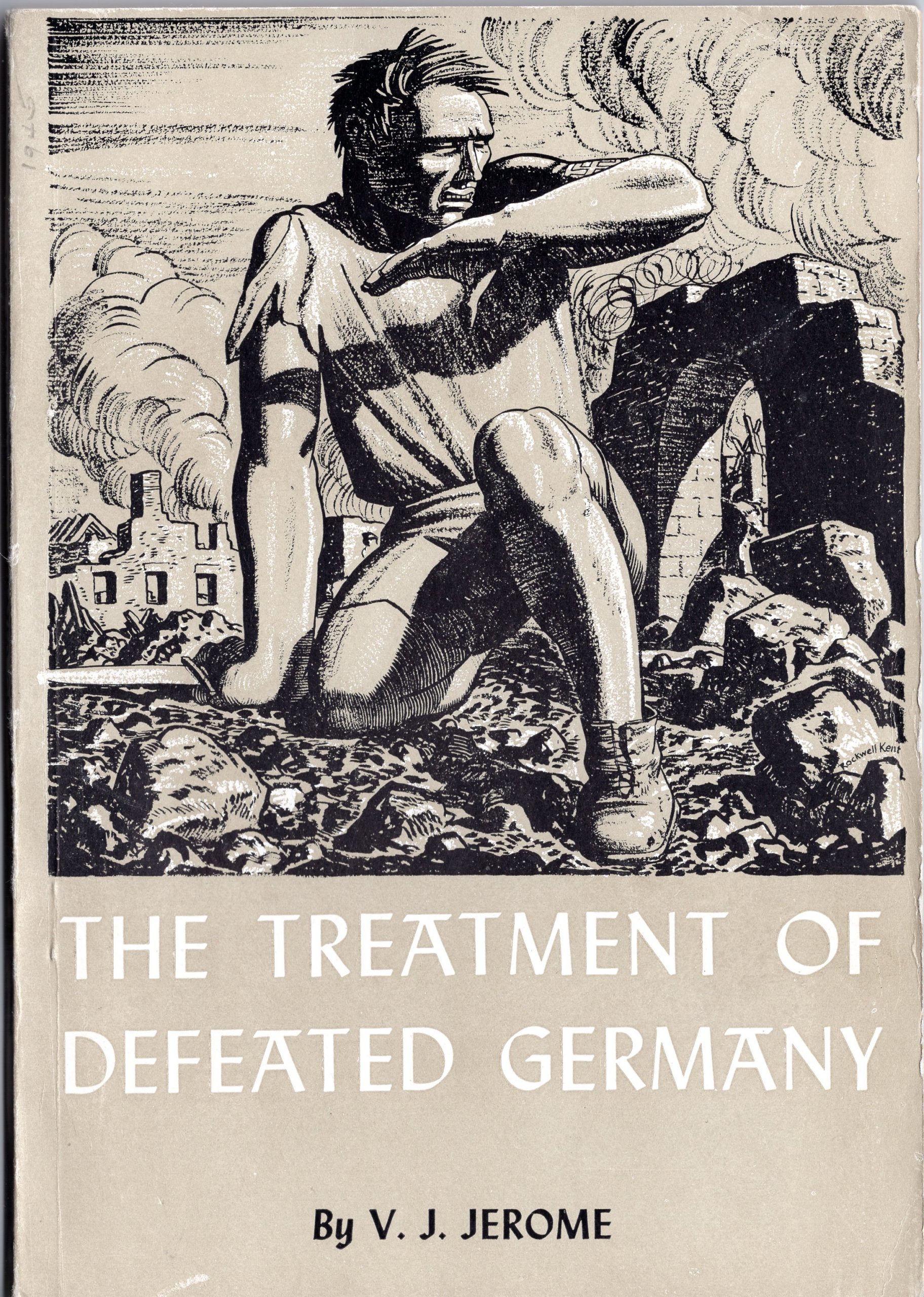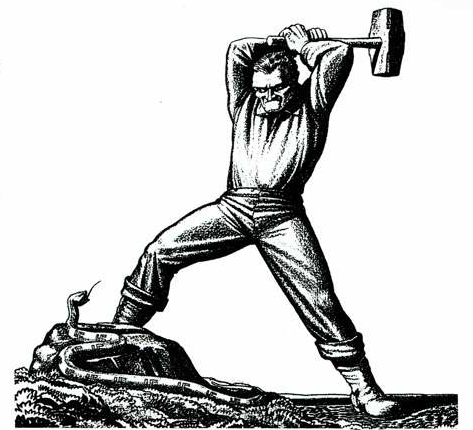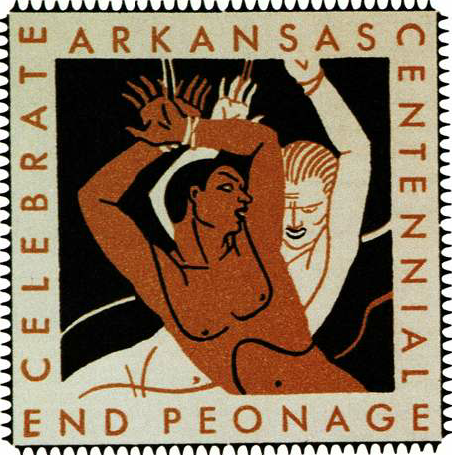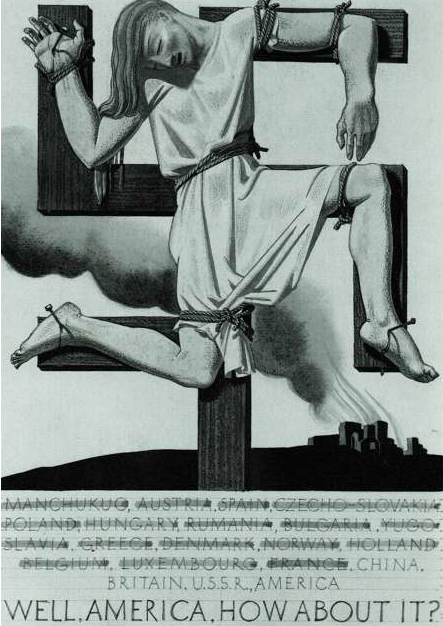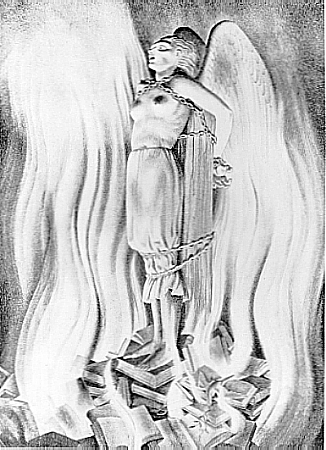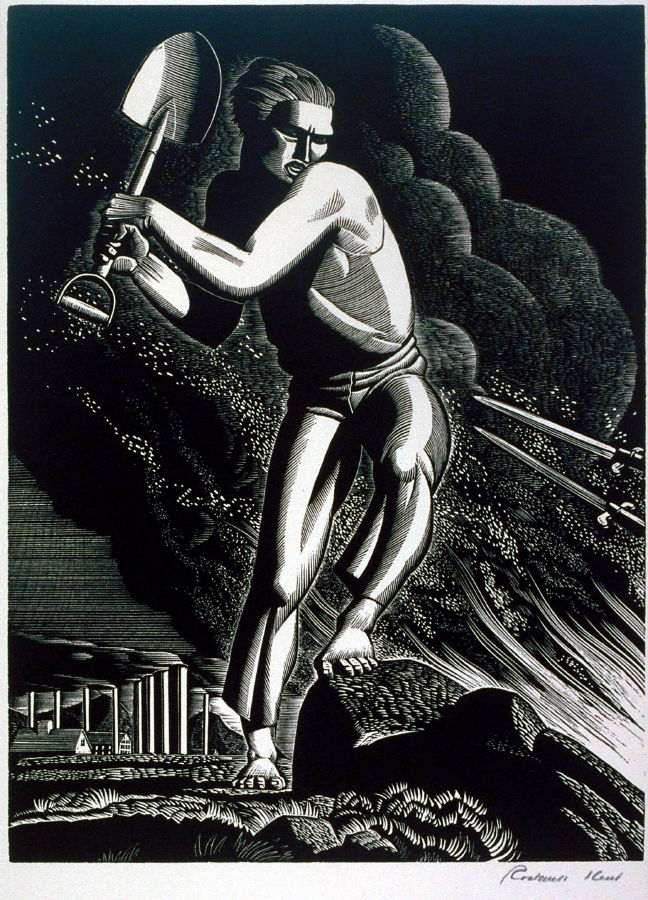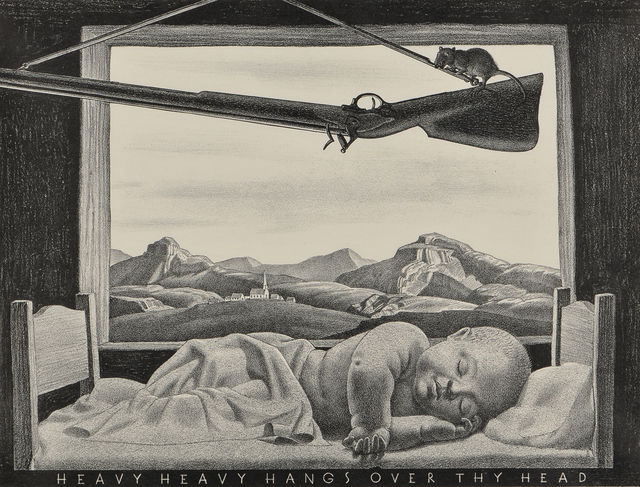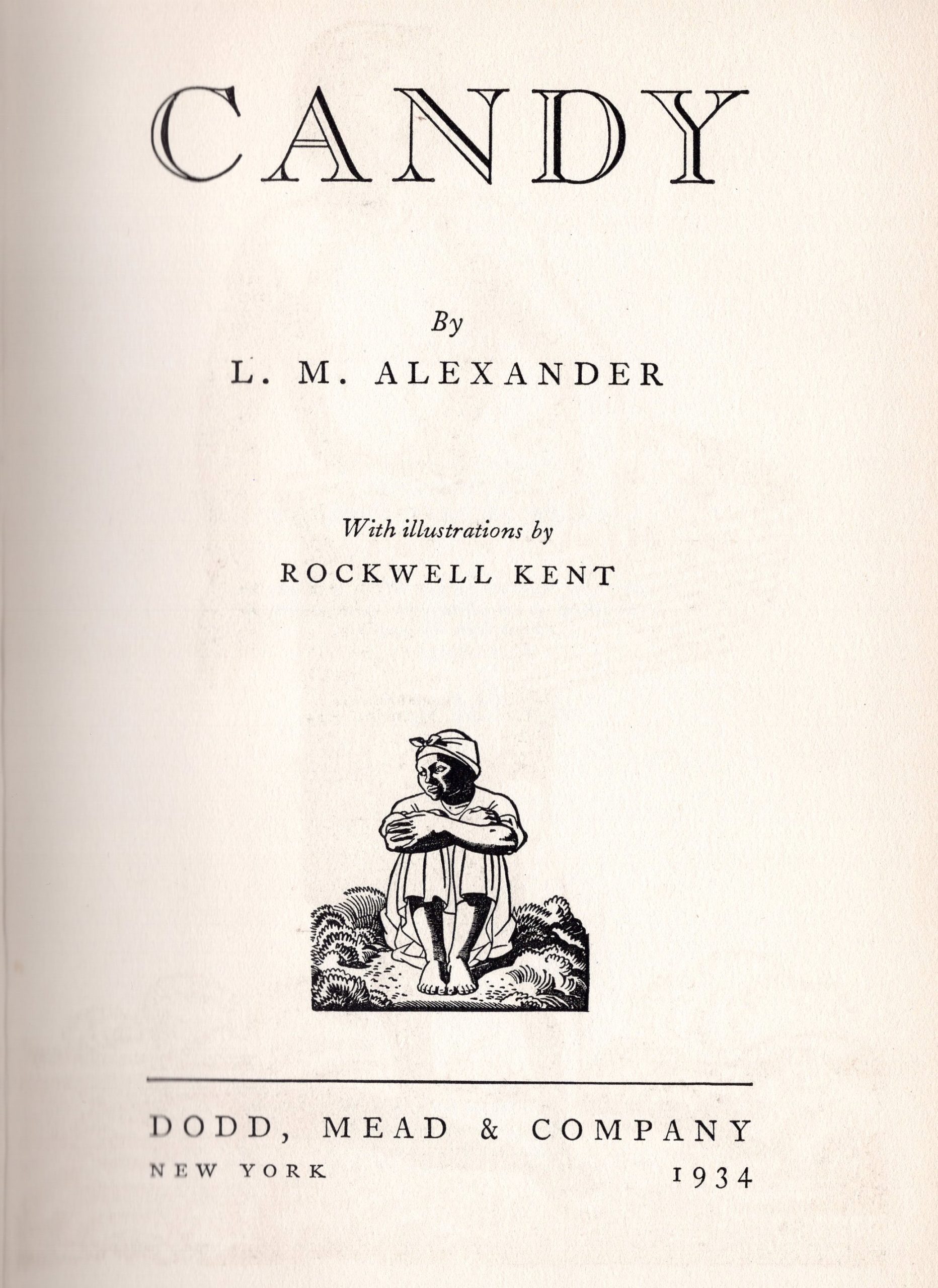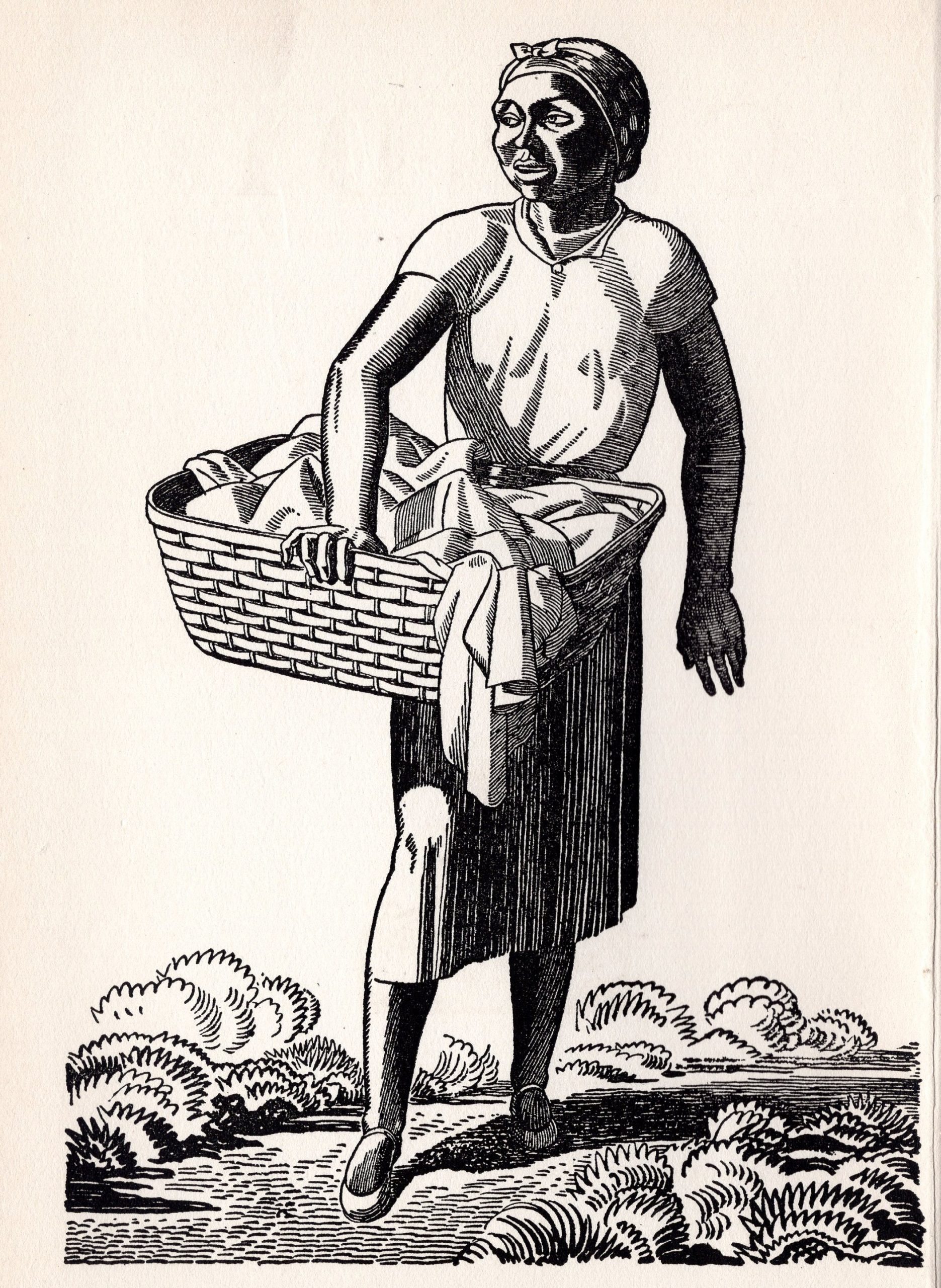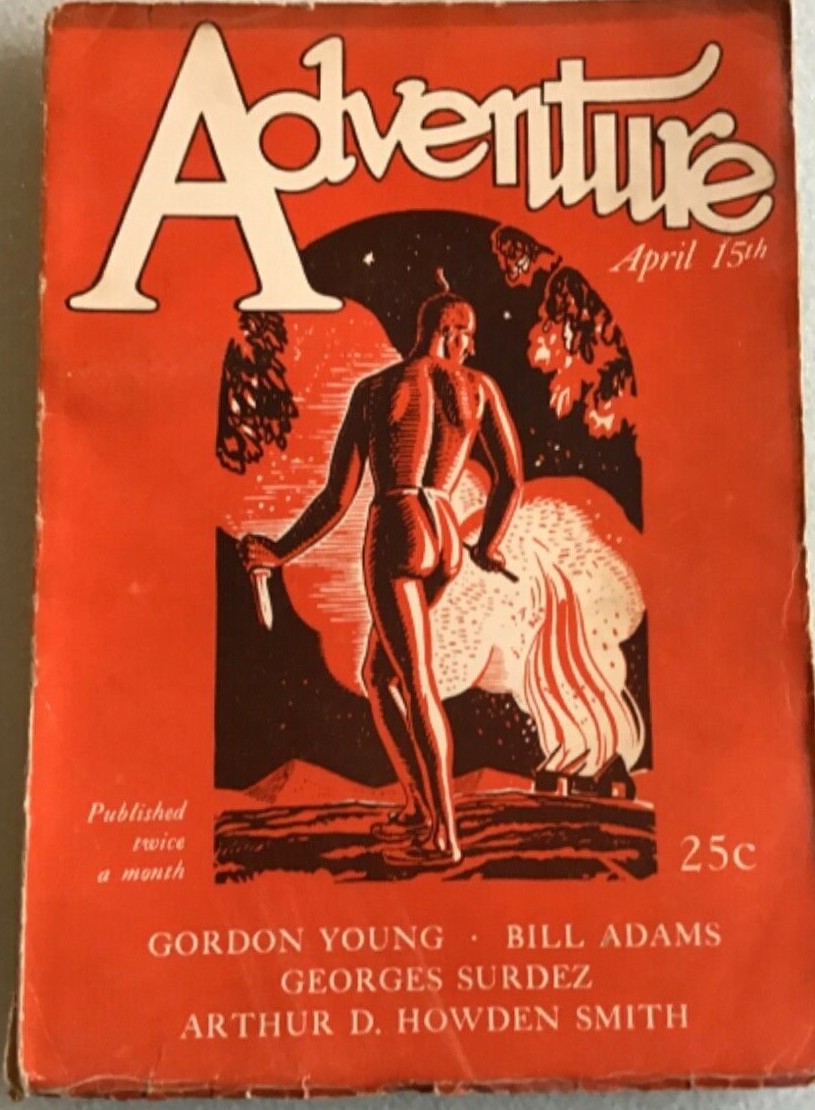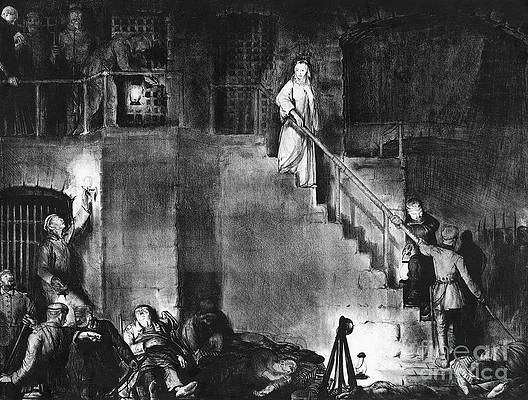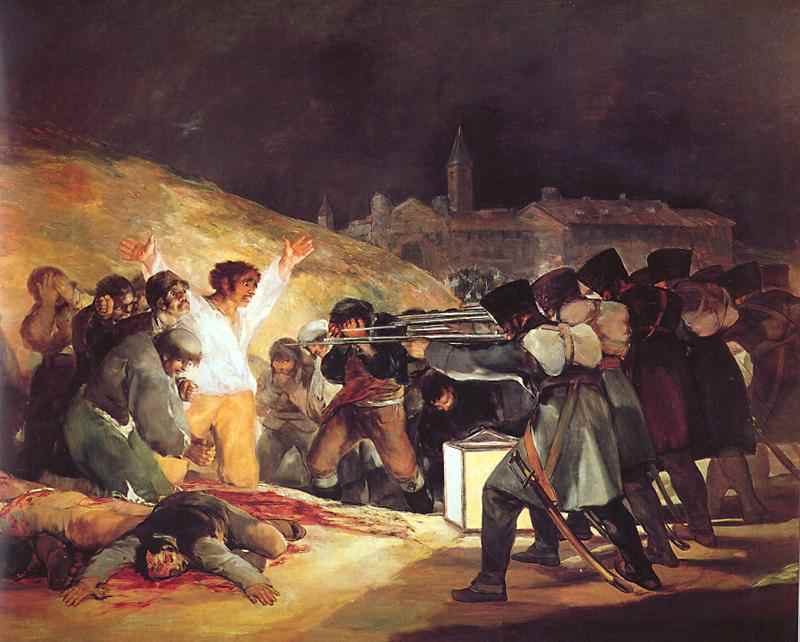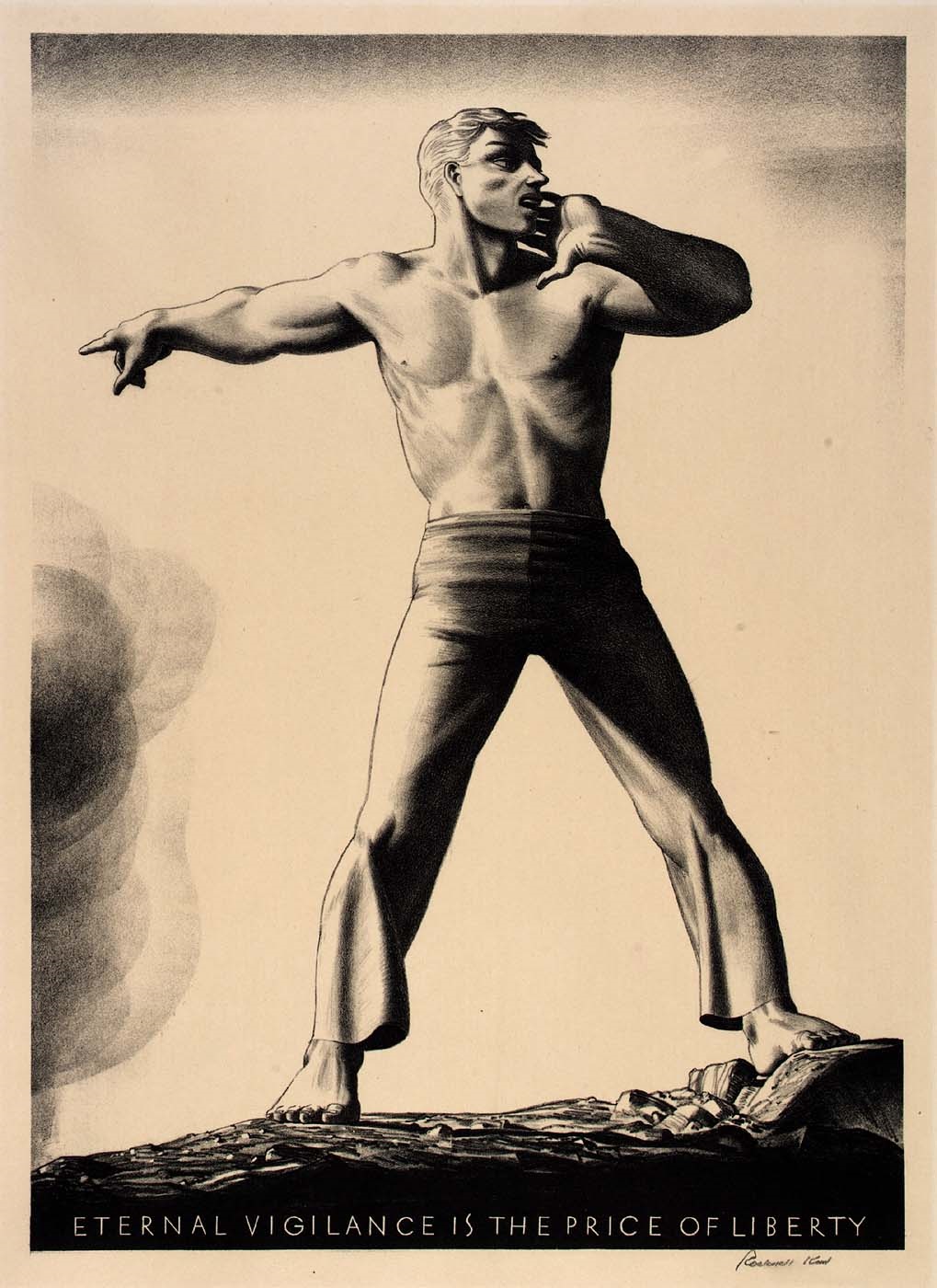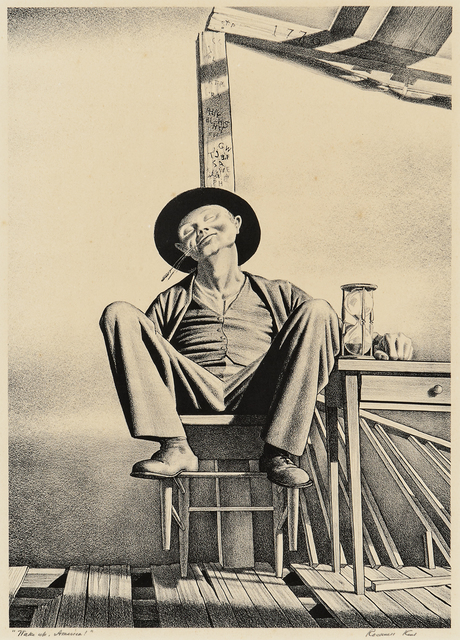ROCKWELL KENT MEETS CANCEL CULTURE
By Will Ross
Editor/Publisher
THE ROCKWELL KENT FORUM
A few days ago I was out of town with my wife, celebrating her birthday. While I was having my first cup of coffee I turned on my phone to check Facebook. Specifically, I was looking to see if my latest post about Rockwell Kent and film had been posted on an illustration fans Facebook group I belonged to. To my surprise I found two notifications from Facebook itself instead. The first said my post had violated Facebook community standards. “What?” I asked myself. The second bluntly informed me that I had been banned from posting to this Facebook group for 30 days. “What? WHAT!?” I had absolutely no idea what was going on.
After a few moments thought the answer occurred to me. The post was about Kent’s print “The Lovers” being featured in the movie “The Thin Man.” I also wrote about the author of the book Dashiell Hammett and his partner, the playwright Lillian Hellman. I had illustrated the post with a screenshot of the movie, the dustjacket to “The Thin Man,” a picture of the “The Lovers,” and Kent’s frontispiece to Hellman’s important anti-Nazi play, “Watch on the Rhine.” Suddenly it hit me. It was the frontispiece! Kent had used the image of the swastika as a cross hanging a man who had been executed by the Nazis. It is a powerful piece of anti-Nazi art. That had to be it. It frankly had never occurred to me that the image would be offensive in any way. For those who are interested, all the illustrations I discuss are found in the “Gallery” connected to this article.
So, here I was, angry and disturbed at the fact that someone at Facebook had no idea what Kent’s image was portraying, and that they had banned me, probably thinking I was some kind of neo-Nazi. I appealed it, of course, but less than five minutes later the notification came back that my appeal had been denied. The process had been clinical, quick, mechanical, and mindless. My wife reminded me that it was probably a computer algorithm at work, though I suspect someone had reported me. Now, here’s an interesting thing, the notifications from Facebook are no longer accessible to me! Maybe I should have taken screenshots of them, just for the record. So, I have been banned, de-platformed, dropped from the illustration Facebook group, AND there is no record it even happened! Right down the memory hole.
The more I thought about this incident, the greater I saw the irony in it. Here, in the 21st Century, what is alleged to be a liberal site – Facebook – has succeeded where the Federal government did not. Facebook had censored Rockwell Kent’s art. I thought of the unsuccessful attempts in 1937 to get Kent to change his message, and some of the figures, in his famous, or infamous, Post Office murals. My article, “Come, Let Us Change Chiefs,” discusses this controversy. The first part can be found under the “Articles” tab on the website. The second part will be included in the forthcoming issue of “The Rockwell Kent Review” published by the SUNY-Plattsburgh Art Museum, home of the Rockwell Kent Gallery.
Then, of course, there was Kent’s famous confrontation with Senator Joe McCarthy in 1954 over the fact that Kent’s books were in US State Department libraries overseas. There are many sources documenting their exchange, including footage in Frederick Lewis’s documentary “Rockwell Kent” and David Traxel’s biography, “An American Saga: The Life and Times of Rockwell Kent.” The bottom line, Kent’s books were not removed.
I also started to think to myself, “What other works of Kent might run afoul of the Facebook censor, human or machine, merely because of the picture, without understanding the context?” For example, Kent’s cover to the pamphlet documenting Heinrich Himmler’s secret speech, “Once in 2000 Years”; Kent’s cover for V.J. Jerome’s book, “The Treatment of Defeated Germany”; the image of a man with a sledge hammer beating a snake covered in swastikas, shown in Eliot Stanley’s article, “The Lively Poster Arts of Rockwell Kent.” That article contains many illustrations by Kent that would probably be banned today. The article is also available on the Rockwell Kent Forum website.
There is plenty of Kent’s art that is not anti-Nazi or anti-fascist that would also be the source of potential trouble. His prints “The Smith Act,” “Workers of the World Unite,” “Heavy, Heavy Hangs Over Thy Head,” to name only three. “The Smith Act” is particularly ironic, given it is a direct attack on book burning and censorship, but the graphic nature of the woman being immolated like Joan of Arc would probably be enough to get me banned again if someone took a dislike to it.
And what about cultural appropriation? I thought of Kent’s illustrations for L.M. Alexander’s important African-American novel “Candy.” Would his work, highly praised at the time, be viewed negatively today? And what of Kent’s dramatic cover for “Adventure” magazine of an Indian and burning farmhouse?
And not just Rockwell Kent’s art. What of George Bellows’ famous print, “The Execution of Edith Cavell?” And Goya’s “The Execution of the Defenders of Madrid?” I am sure there are many others.
Here, my friends, is the ultimate issue with mindless censorship like this, or any censorship really. These images may attack ideologies or describe horrific, and true, historical events. Viewed in isolation, without context, each could be censored for violating some amorphous “community standards.” Yet each, in their own way, speak to the important issues of their times. That desire by Kent to express his concerns for his time is what drove him to make what is now evidently viewed as “challenging” art. Yet it is the challenge that we respond to.
As I was putting this article to bed I heard the news about the removal from eBay of Dr. Seuss books that were now “problematical.” Once again, the irony is rich. Could I even sell “Watch on The Rhine” today? (I don’t, by the way.) Would the dramatic cover illustration result in that book, the source for an Oscar-winning movie, being removed?
When this happened to me I was shocked and, frankly, a little ashamed. Now I am proud of my being de-platformed. Even before I got banned I was a firm believer in free speech. I have always believed that the response to speech I don’t like is more speech. Now that I have joined Kent, metaphorically speaking, on the ramparts I believe it more than ever. Censorship is an act of cowardice by people, or a society, that feel incapable of defending their thoughts or beliefs in open debate. Whether you agree or disagree, your comments are welcome, and will not be suppressed.
Please click here to download this article in PDF Format
© Will Ross rockwellkent.us March 2021 all rights reserved

